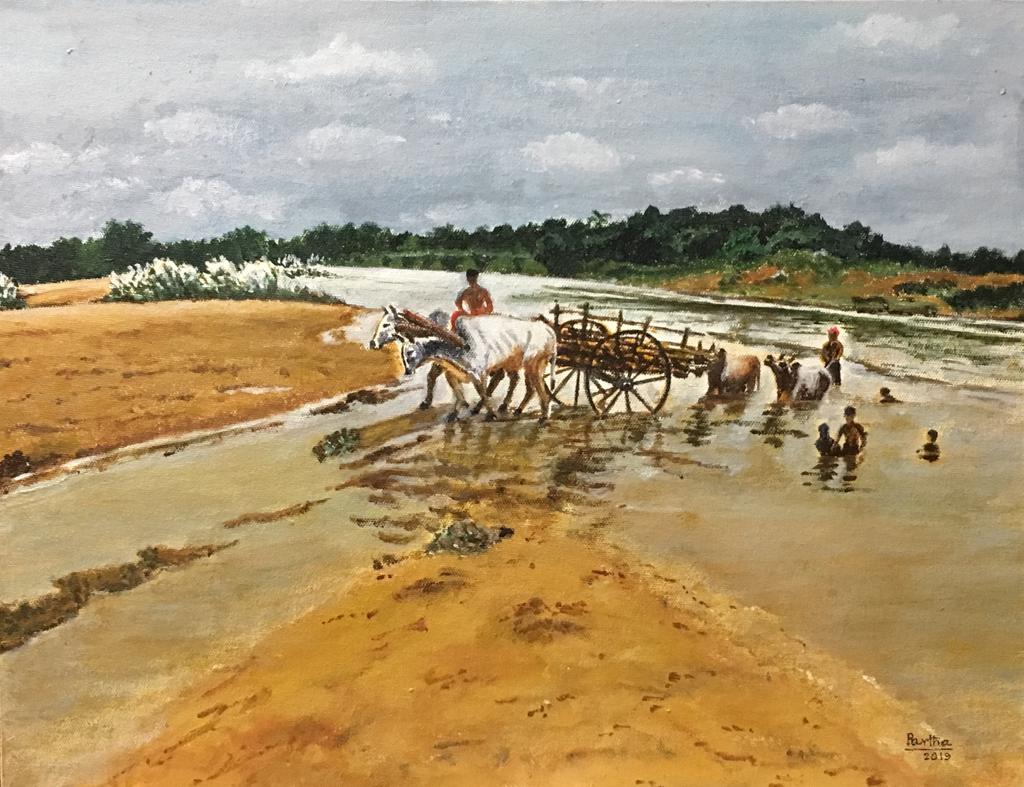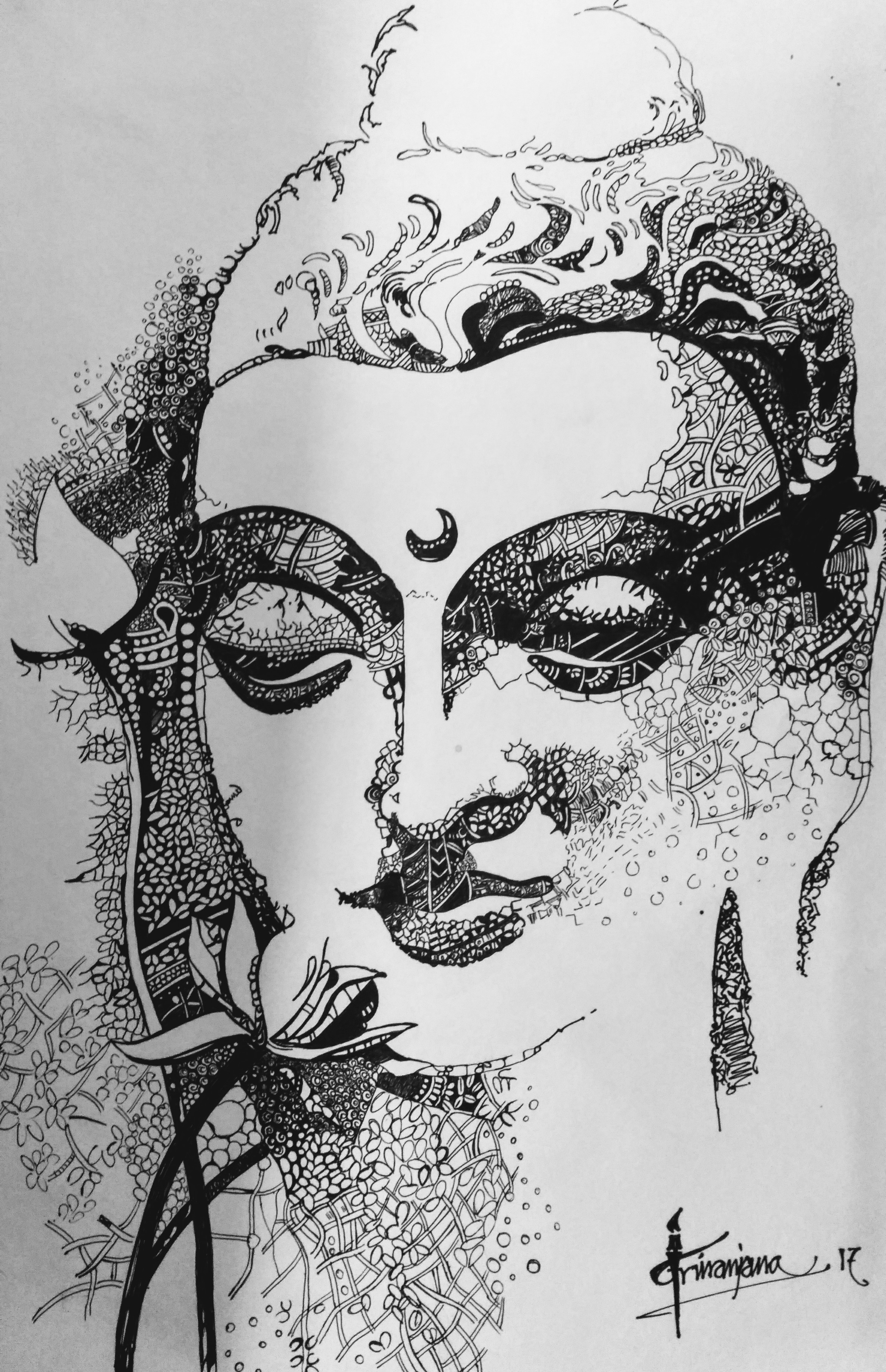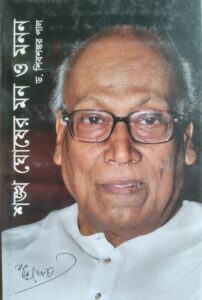- EMPEROR ASOKA THE GREAT AND PANDIT JAWAHARLAL NEHRU
Over the last few years, I have caught quite a bit of flak as an overzealous fan of Pandit Jawaharlal Nehru. Nevertheless, I could not resist sharing with you all the following information about My Great Man. It all started when I came across an article where I found that Nehru was a great admirer of King Asoka the Great. The article indicated that his great admiration of Asoka the Great played a major role in the adoption of the Asokan Pillar and the Wheel of Law in the Indian flag as our national emblems. I looked for additional references in Google to validate my findings, which I present below. It further reinforces my view of Nehru as the primary architect of modern India. The legacy of Asoka the Great as symbolized in the pillar and the wheel is as much a symbol of modern India as are the country’s democracy, secularism, non-alignment, the IITs and the IIMs, the AIMS, Planning Commission, Atomic Energy Commission, ISRO and so much more. And can we deny that they all are in a big way a legacy of our first Prime Minister, Pandit Jawaharlal Nehru? See below:
Even within India, Ashoka is not a living presence. This is despite the emblem of the Republic of India being the celebrated Mauryan-age stone capital from Sarnath that shows four lions standing guard over four “wheels of law”, and the Indian flag having the same wheel of law at its centre (sometimes misinterpreted as a Gandhian spinning wheel).
These symbols were chosen in 1947 by India’s first prime minister, Jawaharlal Nehru, an admirer of Ashoka. Nehru named his daughter (and future PM) Indira Priyadarshini Nehru, her second name meaning “Beloved-of-the-Gods”: the favourite title adopted by Ashoka in his rock and pillar inscriptions scattered across India.
Perhaps a process of rediscovery is due. Maybe a young set of leaders will rise who will read the humanitarian edicts of Ashoka and study the astute advice of Kautilya on the ins and outs of good governance while preparing to accept positions of public responsibility. They could do well to remember that one old leader, Jawaharlal Nehru, revered Ashoka and thought Kautilya was much cleverer than Machiavelli.
https://timesofindia.indiatimes.com/edit-page/Rediscovering-Emperor-Ashoka/articleshow/6714387.cms
Ashoka’s pillars of stone with their inscriptions would speak to me in their magnificent language and tell me of a man who, though an emperor, was greater than any king or emperor.” [The Discovery of India, p. 52.]
https://www.buddhistdoor.net/features/jawaharlal-nehrus-statements-on-the-buddha-and-buddhism
The first Indian ruler to make such international treaties to ensure peace through negotiation. Ashoka’s peaceful relations with neighbours were most certainly an inspiration for India’s first Prime Minister Jawaharlal Nehru, also the country’s first External Affairs Minister, in formulating peaceful ties based on negotiation with our neighbouring countries.
https://www.dnaindia.com/lifestyle/report-modern-lessons-from-the-ancient-king-ashoka-2367127
Jawaharlal Nehru admired Ashoka’s secularism and his efficient administration.
https://www.theguardian.com/books/2012/mar/16/ashoka-india-emperor-charles-allen-review
Ashoka in Ancient India breathed new life into a towering figure of the ancient world, one who, in the words of Jawaharlal Nehru, “was greater than any king or emperor.”
https://www.hup.harvard.edu/catalog.php?isbn=9780674057777
Jawaharlal Nehru, the first prime minister, argued that this new nation’s first and ideal ambassador was Emperor Ashoka, who had ruled in the third century BCE.
(The Loss of Hindustan)
Ashoka, the third emperor of the Mauryan Empire, erected and inscribed … was adopted as India’s official emblem by then Prime Minister Jawaharlal Nehru
https://www.pbs.org/thestoryofindia/gallery/photos/6.html
Discussion block:
- not paying adequate attention to basics, such as education and health. The effects of this are felt today and will not end anytime soon.
- instead of ruling with an even hand or equal fairness, the mollification of one minority became the guiding principle
- big projects and five-year plans became the structural hallmark of the future- instead of focusing on basics, such as agriculture
- misjudging China’s intentions, resulting in the 1962 debacle. This lapse has repercussions even today
- he was fixated on leading the “non-aligned movement” instead of focusing locally on home.
- he was put in place by Gandhi, a megalomaniac of questionable morals. Nehru paid back by instituting or proclaiming Gandhi as the Father of the Nation. The British regarded his contributions as “minimal”.
- Much more could be said, but it is a sad commentary. For the optimistic version see “Verdict on Nehru” by Ram Chandra Guha.
-
Dadabhai Naoroji tagged British Raj as “Blood Sucking Vampires”
-
Saratchandra Chattopadhyay called them, the “Most devilish race under the Sun God ever created”
-
It is a fact that in 150 years Colonial British Raj had transformed India from a fabled land to a land of beggars as if sucking out the last blood drop of our motherland.Please ponder on these statements and tell us how/why Pandit started flirting with Lady Mountbatten from such a Vampire/Devil Colonist when all the freedom fighters were being hanged or transported to Cellular jail in Port Blair facing extreme/inhuman torture. It seems to me that you have not searched and/or read the right history on the freedom movement, only distorted information as dictated by Nehru after removing Rameshchandra Mazumdar.
-
National Congress Party from its very inception was cautioned by Swamiji, “Try to understand the motives of these Colonial British before going into a negotiation, not by appeasing/compromising.. He reinforced his message by saying, I like football (soccer) only because just to kick against a kick.”
-
How cunningly Nehru was played as a pawn under the British Raj remains a mystery, because he was the only leader in negotiation with the British to divide India.
-
Giving away the vast land to Muslims and promoting India as a secular country with 200 million Muslims was another grave mistake. Now it is becoming revealed that Pandit’s Muslim ancestry compelled him to do so to share with his half-brother Jinnah, what a tragedy!
-
And the holocaust that follows…..unprecedented in humanity…. millions slaughters, millions raped, millions uprooted for which India is still bleeding.
-
Next Pandit’s pro-western inclination incurred severe setbacks towards our progress; we were almost oblivious to our own culture
-
Corruption was very much engrained with him and his dynasty which started with looting huge amounts of donations to help INA
- not paying adequate attention to basics, such as education and health. The effects of this are felt today and will not end anytime soon.
- Instead of ruling with an even hand or equal fairness, the mollification of one minority became the guiding principle
- big projects and five-year plans became the structural hallmark of the future- instead of focusing on basics, such as agriculture
- misjudging China’s intentions, resulting in the 1962 debacle. This lapse has repercussions even today
- he was fixated on leading the “nonaligned movement” instead of focusing locally on home.
- he was put in place by Gandhi, a megalomaniac of questionable morals. Nehru paid back by instituting or proclaiming Gandhi as the Father of the Nation. The British regarded his contributions as “minimal”.
- Much more could be said, but it is a sad commentary. For the optimistic version see “Verdict on Nehru” by Ram Chandra Guha.
Then why not read the optimistic version? It may be more credible.
On October 7, Chuni Saha wrote to Partha, following an answer from Partha.
On October 14. Partha Sircar replied as follows:
Chunida:
I sincerely beg of you, please do not take any offense from my response. I will try to be civil and not to be abusive in any way. If I do make some missteps, I ask for your consideration in advance.
I am surprised, nay bothered, that in a very short time, you sent out 3 e-mails, all throwing Pandit Jawaharlal Nehru in a really bad light. Furthermore, like all your posts, almost all others in this e-mail group do the same. It is particularly disturbing to me that they were all
responses to my post where I tried to showcase Nehru’s appreciation and admiration for Asoka the Great and his influence in foisting a premier position for Asoka and his ideals for India. It was not an effort to showcase Nehru’s overall greatness – far from it.
I would also like to point out that most of these adverse comments, to me, can be seriously disputed. They suffer from a double whammy in that they smell of deep-rooted BJP/Hindutva propaganda, mixed in with proverbial conspiracy theories of the creative Bengali mind. That is a potent combination. I sincerely request you to read some authentic material like established biographies of Nehru like those by Prof. Sarvapalli Gopal (son of Radhakrishnan), Shashi Tharoor, Frank Moraes or Ramchandra Guha’s pieces; Nehru’s
Autobiography, Discovery of India, and other similar pieces.
-
Dadabhai Naoroji tagged British Raj as “Blood Sucking Vampires
-
-
It is true that Dadabhai Naoroji was no admirer of the British. Thus, it is not surprising that he may have said that. But we should not miss that he left India to settle in England. He even ran twice for a seat in the British Parliament. He won the first time and lost the second time. Make what you want out of it.
-
Saratchandra Chattopaddhya called them, “Most devilish race under the Sun God ever created”
-
It is a fact that in a span of 150 years Colonial British Raj had transformed India from a fable land to a land of beggars as if sucking out the last blood drop of our motherland.Please ponder on these statements and tell us how/why Pandit started flirting with lady Mountbatten from such Vampire/Devil Colonist when all the freedom fighters were being hanged or transported to Cellular jail in Port Blair facing extreme/inhuman torture. It seems to me that you have not searched and/or read right history on freedom movement, only distorted information as dictated by Nehru after removing Rameshchandra Mazumdar.It is because of the transformed fable land that the freedom fighters were fighting for independence. Nehru fought no less than all the rest of them. Over a period of 25 years, he spent a total of 9 years in jail. Lady Mountbatten met Nehru for the first time in 1947. By that time, revolutionary politics was essentially over and sending to Andamans had stopped.
-
National Congress Party from very inception was cautioned by Swamiji, “Try to understand the motives of these Colonial British prior to go into negotiation, not by appeasing/compromising.. He reinforced his message by saying, I like football (soccer) only because just to kick against a kick.”
I could not find any evidence of the statement you cite. After all, Congress was established only in 1885.Revolutionary activities in India started only after 1905. The nearest evidence I found was in Vivekvani (https://vivekavani.com/swami-vivekananda-quotes-indian-national-congress/) where a quote from him in 1896 is discussed. It is quite at variance from what you say.
-
Giving away the vast land to Muslims and promoting India as secular country with 200 million Muslims was another grave mistake. Now it is becoming revealed that Pandit’s Muslim ancestry compelled him to do so to share with his half-brother Jinnah, what a tragedy!
-
And the holocaust that follows…..unprecedented in humanity…. millions slaughters, millions raped, millions uprooted for which India is still bleeding.
-
Next Pandit’s pro-western inclination incurred severe setback towards our progress; we were almost oblivious to own culture
-
Corruption was very much engrained with him and his dynasty which started with looting huge amount of donation to help INA
There were many other responses from other gentlemen. Sorry, I was not able to log them.
















The article and comments are fascinating.
Comment by dchaudhuri — October 9, 2024 @ 10:21 pm